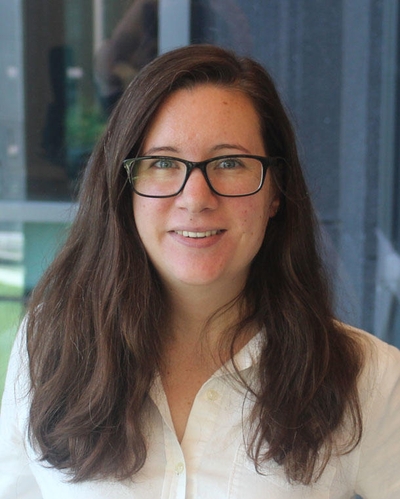
Sarah S. Jackson, Ph.D., M.P.H.
Stadtman Investigator
Infections and Immunoepidemiology Branch
NCI/DCEG
Research Topics
Dr. Sarah Jackson's research seeks to understand how the mechanisms underlying sex differences for cancer risk and outcomes. Specifically, her research addresses how sex differences (hormones, chromosomes, etc.) influence cancer risk and survival.
Sex Differences in Cancer Incidence and Survival
Sex differences are especially stark in cancer incidence and survival where men have at least a 2–3 times higher risk than women of developing and dying from most non-reproductive cancers. Historically, this male predominance has been attributed to increased risk-taking behaviors among men contrasted with the health-seeking behaviors of women. However, a growing body of research has found that differences in hormones, chromosomes, and gene expression between males and females affect immune response to infections and cancer. Dr. Jackson’s research seeks to understand the relative contributions of these factors in the sex differences in non-reproductive cancer incidence and survival.
Biography
Dr. Jackson joined DCEG as a postdoctoral fellow in the Infections and Immunoepidemiology Branch (IIB) in 2018 and was inducted into the NIH Independent Research Scholar Program and promoted to research fellow in 2021. She was selected as an Earl Stadtman tenure-track investigator and an NIH Distinguished Scholar in 2023. Dr. Jackson earned an M.P.H. in epidemiology in 2008 from the George Washington University, Washington, D.C., and a Ph.D. in epidemiology in 2018 from the University of Maryland, Baltimore.
Dr. Jackson has received numerous awards for her work, including the Sallie Rosen Kaplan Fellowship for Women Scientists in Cancer Research, NIH Fellows Award for Research Excellence, the NCI Director’s Intramural Innovation Award, William G. Coleman Jr. Ph.D., Minority Health and Health Disparities Research Innovation Award, and the DCEG Intramural Research Award.
Selected Publications
- Jackson SS, Pfeiffer RM, Hsieh MC, Li J, Madeleine MM, Pawlish KS, Zeng Y, Yu KJ, Engels EA. Sex differences in cancer incidence among solid organ transplant recipients. J Natl Cancer Inst. 2024;116(3):401-407.
- Jackson SS, Marks MA, Katki HA, Cook MB, Hyun N, Freedman ND, Kahle LL, Castle PE, Graubard BI, Chaturvedi AK. Sex disparities in the incidence of 21 cancer types: Quantification of the contribution of risk factors. Cancer. 2022;128(19):3531-3540.
- Jackson SS, Pfeiffer RM, Liu Z, Anderson LA, Tsai HT, Gadalla SM, Koshiol J. Association Between Aspirin Use and Biliary Tract Cancer Survival. JAMA Oncol. 2019;5(12):1802-1804.
- Jackson SS, Pfeiffer RM, Gabbi C, Anderson L, Gadalla SM, Koshiol J. Menopausal hormone therapy and risk of biliary tract cancers. Hepatology. 2022;75(2):309-321.
- Jackson SS, Adami HO, Andreotti G, Beane-Freeman LE, de González AB, Buring JE, Fraser GE, Freedman ND, Gapstur SM, Gierach G, Giles GG, Grodstein F, Hartge P, Jenab M, Kirsh V, Knutsen SF, Lan Q, Larsson SC, Lee IM, Lee MH, Liao LM, Milne RL, Monroe KR, Neuhouser ML, O'Brien KM, Petrick JL, Purdue MP, Rohan TE, Sandin S, Sandler DP, Sawada N, Shadyab AH, Simon TG, Sinha R, Stolzenberg-Solomon R, Tsugane S, Weiderpass E, Wolk A, Yang HI, Zheng W, McGlynn KA, Campbell PT, Koshiol J. Associations between reproductive factors and biliary tract cancers in women from the Biliary Tract Cancers Pooling Project. J Hepatol. 2020;73(4):863-872.
Related Scientific Focus Areas
This page was last updated on Thursday, January 15, 2026

